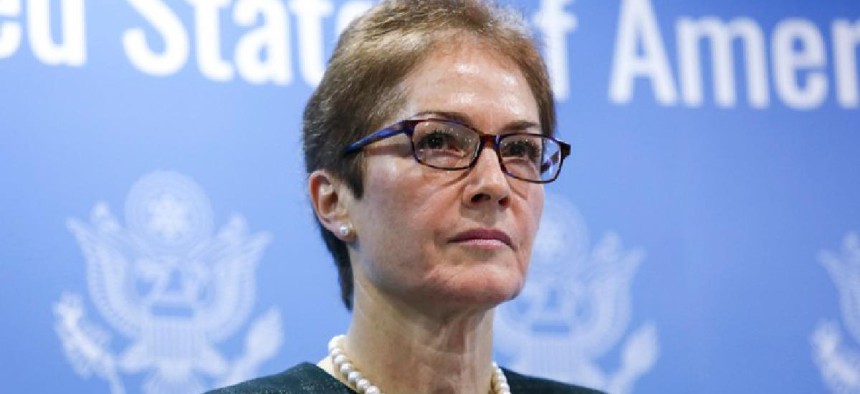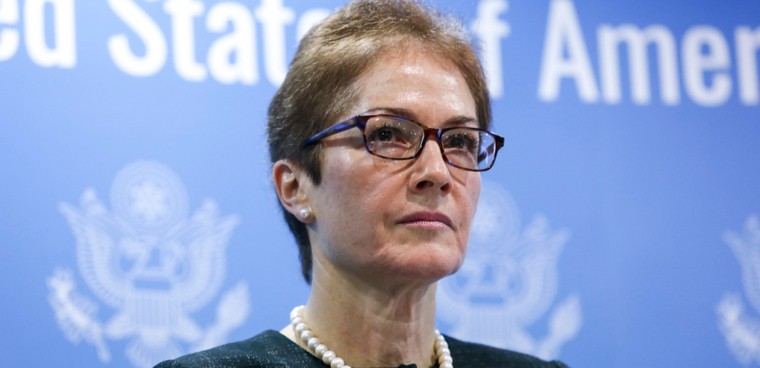Impeachment witnesses talk public service

Four former government officials who played key roles in the first impeachment of former president Donald Trump discussed their experiences during a Public Service Recognition Week event.

Marie Yovanovitch, former U.S. ambassador to Ukraine, shown here in 2016. (Image credit: paparazzza/Shutterstock.com)
Four former public servants who provided public testimony during the first impeachment of former president Donald Trump talked about the value of public service during an Public Service Recognition Week event hosted by the Partnership for Public Service on May 6.
"Frankly, I had this arrogant view that it didn't require much work on our part of keep things going, that we had the Constitution, the Bill of Rights, etc," said Marie Yovanovitch, former U.S. ambassador to Ukraine and a key witness in the Trump impeachment.
"At the end of the day, the Constitution, as beautiful as it is, it's a piece of paper. And our beautiful buildings in Washington and in state capitols around the country are just buildings … You need people to work in the public good, to provide services, to defend our nation, to advance our interests," she said.
The importance of people also filters down to how the American public views the government and the civil servants who work on their behalf, the panelists said. In 2020, only 20% of Americans said they trusted the federal government to do what is right always or most of the time, according to polls conducted in the summer of 2020 by the Pew Research Center.
"In my view it comes down to people," said William B. Taylor, former U.S. ambassador to Ukraine and another impeachment witness. "The people have to understand what their government is doing and choose people that can do that kind of work."
The ability of the government to attract new civil servants, though, may be affected by more negative views of government and government work, said Lt. Col. Alexander Vindman, a former Ukraine expert for the National Security Council and another impeachment witness. When he retired in the summer of 2020, his lawyer said at the time that was because of retaliation from Trump's White House.
"Clearly, the abuses of the last administration in certain ways, at least with regards to the majority of the population, poisoned the well on public service and effective good governance. And it's going to take some time to undo that damage," he said.
The panelists also offered thoughts on how best to shore up government institutions and the civil servants working in them. Vindman suggested strengthening whistleblower protections, a goal some in the House of Representatives have been pursuing lately, and incentivizing people to work for the government in exchange for student loan repayment – although several such programs have so far yielded little for qualifying feds.
The panelists also emphasized that the need for government institutions to remain nonpartisan and for feds to have qualifications for the jobs they hold.
"People will talk about the fact that our bureaucracy, the people that work in public service are not elected. Shouldn't everyone be elected? Isn't that the ethos of democracy? Well, actually, no," said Fiona Hill, former National Security Council official and Russia expert and another expert who testified in the first impeachment. "We want them to actually have the expertise to run the institutions that we are part of. You don't go to the hospital and just have someone who's been elected off the street to do your surgery."



